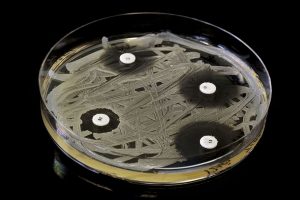Air purifiers are not exactly on the top of the list of items that most people consider necessary.
And the price that some people are asking for them doesn’t help the cause.
But even though that may be,
Table of Contents
Are Air Purifiers a Waste of Money?
My opinion is that air purifiers are not a waste of money when you consider that they filter contaminants from the air that trigger allergies and aggravate sinuses.
When you compare the amount of money spent on over the counter medications
and trips to the doctor to get relief from sinus and allergy symptoms, air purifiers can actually save you money rather than waste it.
My guess is that most people just do not realize how well air purifiers really work these days.
Or it could be that people just do not place the same emphasis on breathing clean air is they do eating healthy foods and drinking clean water.
Air cleaner advancements

The technologies behind air purifiers have advanced a great deal since the days of the air cleaners that used charged up plates and had to be scraped all the time to work right.
Smart air purifiers have come on the market that use sensors to measure the air quality and only run the air purifier when needed.
They use multiple types of technologies to eliminate everything from pollen, dander, and even off-gassing from construction adhesives, crafting, etc.
The efficiency in which they work is downright incredible.
Their capacity to filter out airborne contaminants and neutralize bacteria and germs up to 99%,
should be exciting to anybody dealing with household breathing problems related to dander, mold spores, or chemical cleaners just to name a few.
 But it is understandable.
But it is understandable.
Working people work to pay their bills,
put food on the table, send their kids to college, and provide a roof over their families heads.
And we don’t like to waste the extra money we do have.
There’s plenty of things around the house that you have to buy that you’re not going to get around,
when something comes up, or something goes out, you’re going to have to lay down the cash regardless whether you have it to spend or not.
Other appliances are just more important than air purifiers.
Or are they?

Are air purifiers worth it?
A good air purifier is worth every cent when you consider the fact that most people spend 90% of their time inside and the quality of the air inside is 2 to 5 times worse than it is outside.
According to the environmental protection agency, indoor air pollution can occasionally be more than 100 times higher than outdoor levels.
Indoor air pollution and sick building syndrome have become part of the normal in our society and even more so and other parts of the world like Asia.
Homes and office buildings are built to keep the outside from getting inside.
Keeping the outside climate from affecting the inside climate is crucial to maintaining the heat and cooling inside the house.
The result is that indoor air pollutants can rise to the point where they can cause health problems and discomfort problems.
According to the American Lung Association,
Air pollution can pose health risks in the form of asthma attacks, cardiovascular disease,
Wheezing and shortness of breath, and premature death only to name a few.
Immediate effects include irritation to the eyes, the nose, and the throat. Headaches
Along with dizziness and fatigue can also be symptoms related to bad indoor air quality.
If you’re like me, bringing up facts from the World Health Organization and the EPA makes me want to nod off.
But what better way is there to stress the seriousness of indoor air pollution?
Bad air quality in your home is a serious subject.
What to look for in an air purifier?
Indoor Air purifiers work better in smaller spaces.
When you’re considering buying an air purifier think about what space you’re going to want to put it in.
And remember that most air purifiers rely heavily on dense HEPA filters so room size is important to consider.
If a room is too big you might even consider putting more than one in the area.
When to use an Air Purifier?
1. Office
Your office or cubicle is an excellent place to use an air purifier because of the amount of time that you spend there. The traffic going through an office also introduces a variety of air quality components that you do not normally get in your own home.
A lot of breathing issues can become exasperated when you get to work. You may find that you don’t experience any symptoms unless you’re sitting in your office.
The point is that if you are in a space quite often and you’re experiencing respiratory symptoms, there may be something in that area that is causing them.
2. Carpeting
Using an air purifier in a carpeted room makes sense not only because of the amount of dirt that gets left behind and carpet and kicked up into the air when people are moving through, carpets contain stain resistant chemicals that release off-gassing as long as 5 years from installation.
3. Bedroom
Putting an air purifier in your bedroom is a sound idea because of the amount of time do you spend sleeping and because you tend to breathe deeper when you sleep.
A lot of issues with sleep apnea can be resolved by breathing clean air while you sleep.
If you’re already suffering from a sleep condition like sleep apnea and you have dust mites or a poorly-maintained HVAC introducing mold spores into your bedroom, it’s only going to make it that much harder to get rest.
And the air purifier near your bed will help remove the contaminants before they enter into your lungs and sinuses.
4. Gas stoves
According to rmi.org, homes with gas stoves have nitrogen dioxide concentrations that are 50 to 400% higher than homes of electric stoves. children in a home with a gas stove have a 24 to 42% increased risk of having asthma. Cooking on gas can Spike emissions of nitrogen dioxide and carbon monoxide to levels that violate outdoor pollutants standards.
If replacing a gas stove with electric is not an option, then using a air purifier with a heavy carbon filter is useful to help maintain healthier breathing.
Are Air Purifiers harmful?
The concern over air purifiers being harmful or having bad side effects is 100% related to air cleaners that use or produce ozone as a by-product.
Ozone Machines have their place in remediation and can produce astounding results when used right but they are not meant to be used in the vicinity of people or pets.
Ozone can be a lung irritant and trigger asthma attacks.
An air purifier should make it easier to breathe and not harder to breathe, that defeats the point.
The best type of indoor air purifier
The best indoor air purifier for your home , bedroom, or office should rely on HEPA and carbon filters for the primary technologies to ensure absolute safety when using an air purifier.
The only caveat to this is the HVAC system.
Most of the problems that are associated with indoor air pollution can be traced right back to your HVAC ductwork.
The reason is because of the environment inside your central heat and air unit.
Primarily dark and damp, it can be the ideal breeding ground for mold and mold spores.
This along with dirty ductwork can turn your HVAC into a air pollution factory inside your home every time it kicks on.
These units can transport indoor air pollutants from one side of the house or building to the other side as well.
This is the one area where other technologies besides HEPA are recommended.
Induct air purifiers that use photocatalytic oxidation or plasma ionization are the best air purifiers for HVAC whole house cleaning. They also transform your HVAC System into a whole house air purifier.
But before you install an induct air purifier, you may want to consider that to get use out of the air purifier all year long, the fan on your HVAC central heat and air system must remain on continuously.
This can make your electric bill go up and also cause your home to be extra humid during the air conditioning season because running the fan continuously on the air conditioner tends to evaporate the moisture in the air instead of turning it into condensation and dripping it outside.
Also many of the air quality problems related to the central heat and air can be traced back to a condensation drip pan that is clogged, or evaporative coils that are dirty.
Are air purifiers worth it? Are they worth the money?
Indoor air pollution is a serious issue that can have long-standing effects on your health.
Not only do allergens like pollen and dust mites aggravate and trigger allergies and asthma, issues like off-gassing from carpets, gas stove emissions, chemical cleaners and fragrances, all reside inside the home and affect the quality of the air you breathe.
In contrast, air purifiers are definitely worth the money.

